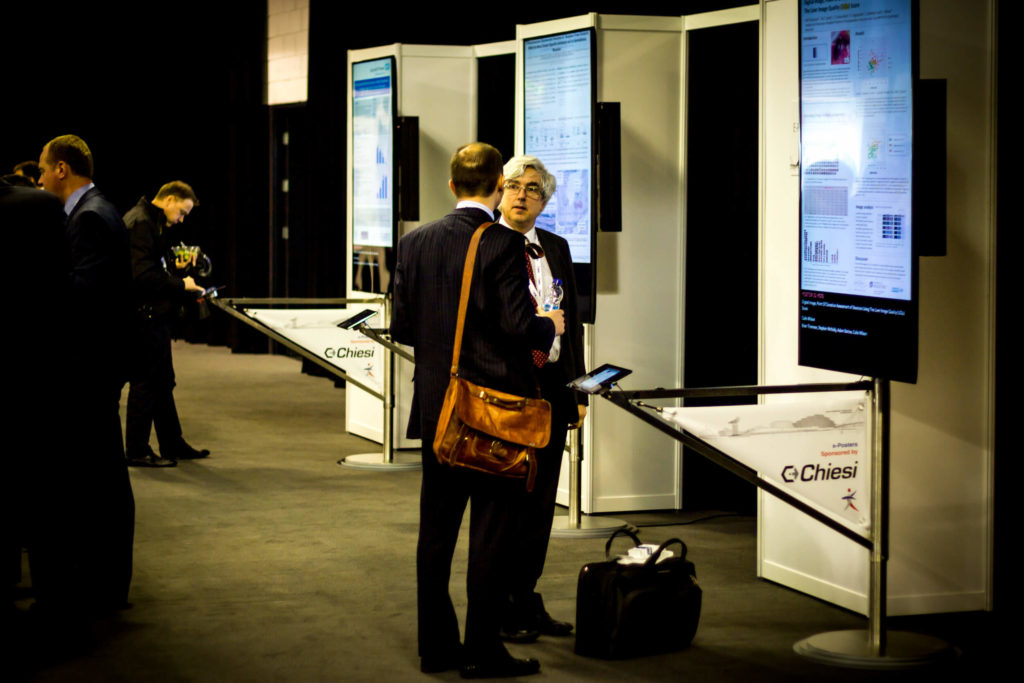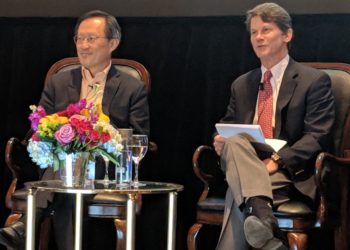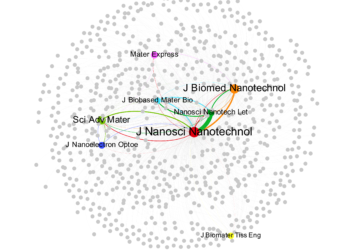There are plenty of opportunities for researchers to share their work for community feedback and reuse once they’ve written up the results — from preprints to publication and beyond. But most, if not all, researchers also need and want to get input before publication, most typically through a poster or presentation at a conference. While that face-to-face interaction is very important, it’s historically been difficult to share these early outputs more widely. A Berlin-based startup, Morressier, aims to solve this challenge. Co-founder Sami Benchekroun shares more in this interview.

Your website describes Morressier as “Building the largest platform for early stage research”. What do you mean by early stage research? And why does it need its own platform – how does it differ from other platforms that enable sharing of different research types?
We consider early-stage research to be conference posters and presentations and all the data and findings that are generated throughout the research process prior to a final published paper. Within this content you can find metadata, images, videos, and negative results, for example. This research is the foundation of every scientific breakthrough, yet to date it has been underserved by technology and the research community as a whole. We believe this needs to change and have built Morressier to provide scientists with one place to share, discover, and gain recognition for their work — a home for early-stage research. Unlike other platforms, we focus specifically on bringing the traditionally offline early-stage research that is shared at conferences online and making it easily and openly discoverable. For example, Figshare’s primary focus is on making the numbers behind research visible, while F1000 is predominantly an open access platform, both of which are very different core offerings from Morressier. In addition, we offer content management software that makes it easy for universities and societies to organize, collect, and digitize research from their conferences, meetings, and workshops, further supporting our mission to build the home for early-stage research.
Researchers in different disciplines approach their research in different ways. Is Morressier intended to be used for early stage research across all disciplines and, if so, what approach are you taking to this?
Our long-term aim is definitely to cover all scientific disciplines. You’re right that the research process differs for each discipline, and there’s also variation in the way findings are presented and discussed at conferences. However, regardless of discipline, conferences play an essential role for researchers as the place where new ideas and findings are first discussed. We’re currently looking into how conferences and the format of conference content differs from discipline to discipline and are working on new features to ensure we can offer the best experience for everyone. We are focusing on perfecting the use case for STM as a first step.
What has the response to your platform been from researchers? Do they see it as something they need, and how are they making use of it?
The response has been very positive. Our users have firsthand experience of traditional academic conferences and are very aware of how much research goes missing when findings are limited to paper posters. On the platform they can explore posters and presentations before, during, and after a conference, ensuring they discover all the findings that are relevant to them and that they keep the conversation going with other authors.
Sharing conference content on Morressier is particularly important for early-career researchers who likely don’t have enough published articles under their belt to position themselves professionally. Every researcher has a profile where all their posters, presentations, and supporting data are presented in one place, and each of those pieces of research has a DOI. We’re also working on incorporating ORCID iDs and will soon offer CC-BY licenses to enable Morressier to become fully integrated into the research ecosystem.
What do researchers like most and least about the Morressier platform — and why?
The main reason they like Morressier is because it offers one place for their conference content to be displayed and connected. On the platform, they can increase the reach and recognition of their work and gain a complete overview of all their pre-published research. We focus on providing a simple and straightforward user experience and on helping researchers quickly find relevant findings via our search technology.
An area we are still working on is the coverage of our platform. We’re growing the content on the platform and are looking to gain a wider spread of all scientific disciplines. This is why we’d like to invite universities, conferences, and institutions to work together with us and build an open and diverse collection of early-stage research.
Who else is — or should be — interested in early stage research, and why?
Early-stage research is valuable to everyone in academia. Imagine you could keep track of where researchers from every department of your university or institution are sharing their posters while gaining interaction statistics and insights into the reach of this content at a far earlier stage. Accessing trends and signals from the earliest stage of science is also helpful for funding bodies, industry, and conference organizers to ensure they stay one step ahead when making decisions.
Morressier is being funded by investors, including some of the great and the good in scholarly publishing! Please tell us a bit more about your current and future funding model(s).
We’re very happy to have highly experienced investors on board including Jan Reichelt, Annette Thomas, and Jan Maier, along with Swiss venture capital fund Redalpine, which has a focus on life sciences. The support of these investors means we can make open science a reality by not charging for access to research and instead monetizing via scientific analytics and content management software for universities, associations, and scientific conferences to organize their early-stage research. We are already working with a number of associations including the International Diabetes Federation, World Psychiatric Association, and the World Stroke Organization to showcase their conference posters and presentations.
We’ve now kicked off our business model around analytics for institutions and industry this year and are looking forward to diving further into pilot programs and developing partnerships. As we offer analytics in a B2B model ,we develop pricing structures that are dependent on company size and needs. At the moment, we are establishing first partnerships with universities of all sizes, institutions, and industry players. During this development phase we are offering our partners a discounted pricing model as we work together with them to learn more about their needs.
Where do you hope Morressier will be in five years time — and how are you going to get there?
We aim to be the home for early-stage research and to be fully integrated into the scholarly ecosystem. We believe that the perfect state of open science is when all the dots from idea to final published paper are connected, including all metadata, negative results, and so on. We’re very excited to work on new business models in scholarly publishing that keep content openly accessible and support progress in science at the same time. Everyone can create an account on Morressier and explore the collection of early-stage research. By monetizing via analytics, which highlight the reach of this research, trending topics in science, keyword tracking, and more, we aim to provide institutions, industry, and associations with the information they need to make the best decisions for their business and researchers. With our focus on early-stage research and willingness to collaborate with all players in the ecosystem we believe we’re on a great path to achieve our mission of accelerating scientific breakthroughs.
Last, but not least, what’s the story behind the name?
I’m an avid sailor and have always greatly admired Bernard Moitessier who, in 1968, was on track to win a round-the-world yacht race, but elected to opt out of it as he did not want to be part of the commercialization of sailing. Moitessier’s determination, passion for his craft, and ethos of going against the grain appealed to me. So, when we were brainstorming names for our company, I was inspired to combine part of Moitessier’s name with “more research”, which is how Morressier was born.
Discussion
3 Thoughts on "Sharing and Recognizing Early Stage Research: An Interview with Sami Benchekroun of Morressier"
Early-stage research is very important and usually is put on the back burner compared with published papers. Participation in conferences is very important to get feedback on early stage research which usually goes unnoticed. Therefore, having one platform whereby such research is disseminated would complete the scientific and publishing scheme. Bashar H. Malkawi
Speaking as a working scientist, I am doubtful if science really needs this… . I can barely keep up with troubleshooting the “early stage research” in my own group, cannot imagine how I would find the time to use this service!
What might be more helpful is a virtual conference center, especially for researchers who lack the funds to attend conferences in person. In this way, they could receive feedback from fellow scientists without having to incur the cost of travel. Will this be a place for posters that have not been presented formally at a conference? When I was the Editor of Science Signaling (nee Science’s STKE), the journal organized and “hosted” a virtual conference (e-conference) on calcium entry signals : http://stke.sciencemag.org/resources/forums_archive/Forum14 . That is not quite the same as what Morrissier appears to be trying to achieve, but it seems as though an online place for virtual presentations could be beneficial.



